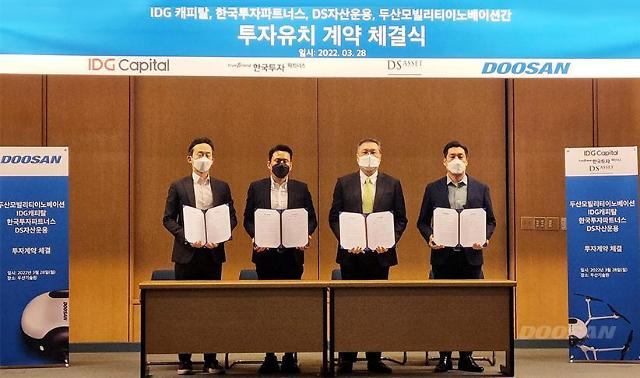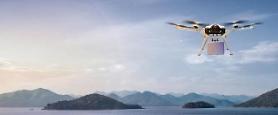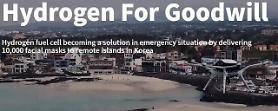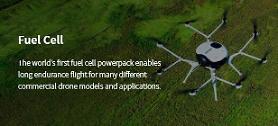
[Courtesy of Doosan Mobility Innovation ]
SEOUL -- Doosan Mobility Innovation, a drone solution provider in South Korea, has secured a new investment fund to step up the development of logistics drones and high-output fuel cell power packs with a water circulation cooling system, which are seen as a key element in urban air mobility (UAM), an ecosystem covering personal air vehicles and infrastructure.
Doosan Mobility Innovation (DMI) said it has attracted some 27 billion won ($22 million) from three investors including IDG Capital, Korea Investment Partners, and DS Asset Management. The money will be used to strengthen DMI's product lineup, strengthen overseas sales, and develop water-cooled fuel cells.
The range of multi-copter drones is limited due to their relatively short battery life. Hydrogen fuel cell drones could become a game-changer in the global market for unmanned flying systems. DMI has tried to enhance the use of hydrogen drones in various areas such as patrols, security, emergency rescue support, and logistics transfer across land and sea.
"We will diversify our mobility business using hydrogen fuel cells and lead the industrial drone industry by expanding our new product lineup through our own technology development and actively entering overseas markets," DMI CEO Lee Doo-soon said in a statement on March 29.
DMI's hydrogen drone can fly for more than two hours and has low noise and vibration, making it suitable for tasks such as reconnaissance and monitoring. The company has been involved in the development of fuel cell drones for military use. As a member of UAM Team Korea, a public-private consultative body that would commercialize drone taxis in 2025, DMI has formed a task force to develop a water-cooling fuel cell system.
High fuel cell output is required to transport passengers through personal air vehicles. DMI thinks the combination of logistics drones and high-performance fuel cell power packs is suitable for UAM because it can send people away for a long time. DMI's short-term goal is to introduce a cargo drone that can fly for more than two hours and carry up to 15 kilograms of cargo.
In January 2022, DMI tied up with 42air, an American subsidiary of a South Korean startup that specializes in autonomous transport as a service, to develop a marine drone delivery service powered by fuel cells that can provide an extended flight time. 42air provides delivery services to ships at anchorages and buoy systems in the Mississippi River near the Port of New Orleans.
Copyright ⓒ Aju Press All rights reserved.



